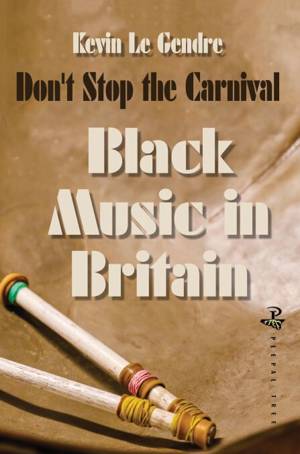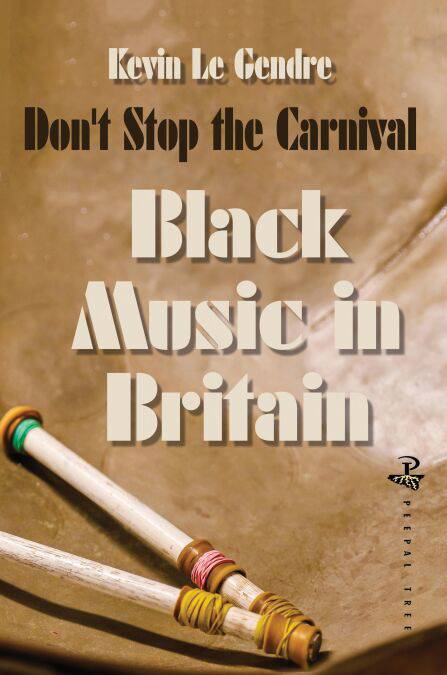
- Retrait gratuit dans votre magasin Club
- 7.000.000 titres dans notre catalogue
- Payer en toute sécurité
- Toujours un magasin près de chez vous
- Retrait gratuit dans votre magasin Club
- 7.000.000 titres dans notre catalogue
- Payer en toute sécurité
- Toujours un magasin près de chez vous
12,99 €
+ 12 points
Format
Description
Black British Music and the people who made it, from Tudor times to the mid '60s.
This is a story of empire, colonialism and then the new energies released by the movements for freedom and independence of the post second-world-war years; of the movements of peoples across borders; of the flow of music around the triangle that takes in Africa, the Caribbean, the USA and Great Britain; of temporary but highly influential visitors like Paul Robeson; and of the settlement of ex-colonial peoples who brought their music to Britain, and changed its forms and concerns in the new context. It is the story of institutions like the military that provided spaces for black musicians, but it is also the story of individuals like John Blanke, the black trumpeter in the court of Henry VIII, Ignatius Sancho the composer and friend of Laurence Sterne in the 18th century, early nineteenth century street performers such as Joseph Johnson and Billy Waters, child prodigies such as George Bridgewater and composers such as Samuel Coleridge-Taylor in the later 19th whose music is still played today. Above all, it is the story of those individuals who changed the face of British music in the post-war period, who collectively fertilized British jazz, popular music and street theatre in ways that continue to evolve in the present.
This is the story of the Windrush generation who brought calypso and steelband to Britain's streets, Caribbean jazz musicians such as Joe Harriot and Shake Keane, or escapees from apartheid South Africa, such as Chris McGregor and Dudu Pukwana who brought modernity and the sounds of Soweto to British jazz, and a later generation who gave ska and reggae distinctive British accents. Based on extensive research and many first-hand interviews, one of the great virtues of Kevin Le Gendre's book is lack of London-centricity, its recognition that much important development took place in cities such as Manchester, Leeds and Bristol. As a noted reviewer of black music for the BBC, the Independent, Echoes and other journals, Le Gendre brings together both a sense of historical purpose and the ability to actually describe music in vivid and meaningful ways.
This is a story of empire, colonialism and then the new energies released by the movements for freedom and independence of the post second-world-war years; of the movements of peoples across borders; of the flow of music around the triangle that takes in Africa, the Caribbean, the USA and Great Britain; of temporary but highly influential visitors like Paul Robeson; and of the settlement of ex-colonial peoples who brought their music to Britain, and changed its forms and concerns in the new context. It is the story of institutions like the military that provided spaces for black musicians, but it is also the story of individuals like John Blanke, the black trumpeter in the court of Henry VIII, Ignatius Sancho the composer and friend of Laurence Sterne in the 18th century, early nineteenth century street performers such as Joseph Johnson and Billy Waters, child prodigies such as George Bridgewater and composers such as Samuel Coleridge-Taylor in the later 19th whose music is still played today. Above all, it is the story of those individuals who changed the face of British music in the post-war period, who collectively fertilized British jazz, popular music and street theatre in ways that continue to evolve in the present.
This is the story of the Windrush generation who brought calypso and steelband to Britain's streets, Caribbean jazz musicians such as Joe Harriot and Shake Keane, or escapees from apartheid South Africa, such as Chris McGregor and Dudu Pukwana who brought modernity and the sounds of Soweto to British jazz, and a later generation who gave ska and reggae distinctive British accents. Based on extensive research and many first-hand interviews, one of the great virtues of Kevin Le Gendre's book is lack of London-centricity, its recognition that much important development took place in cities such as Manchester, Leeds and Bristol. As a noted reviewer of black music for the BBC, the Independent, Echoes and other journals, Le Gendre brings together both a sense of historical purpose and the ability to actually describe music in vivid and meaningful ways.
Spécifications
Parties prenantes
- Auteur(s) :
- Editeur:
Contenu
- Nombre de pages :
- 320
- Langue:
- Anglais
Caractéristiques
- EAN:
- 9781845234454
- Date de parution :
- 23-05-18
- Format:
- Ebook
- Protection digitale:
- /
- Format numérique:
- ePub







